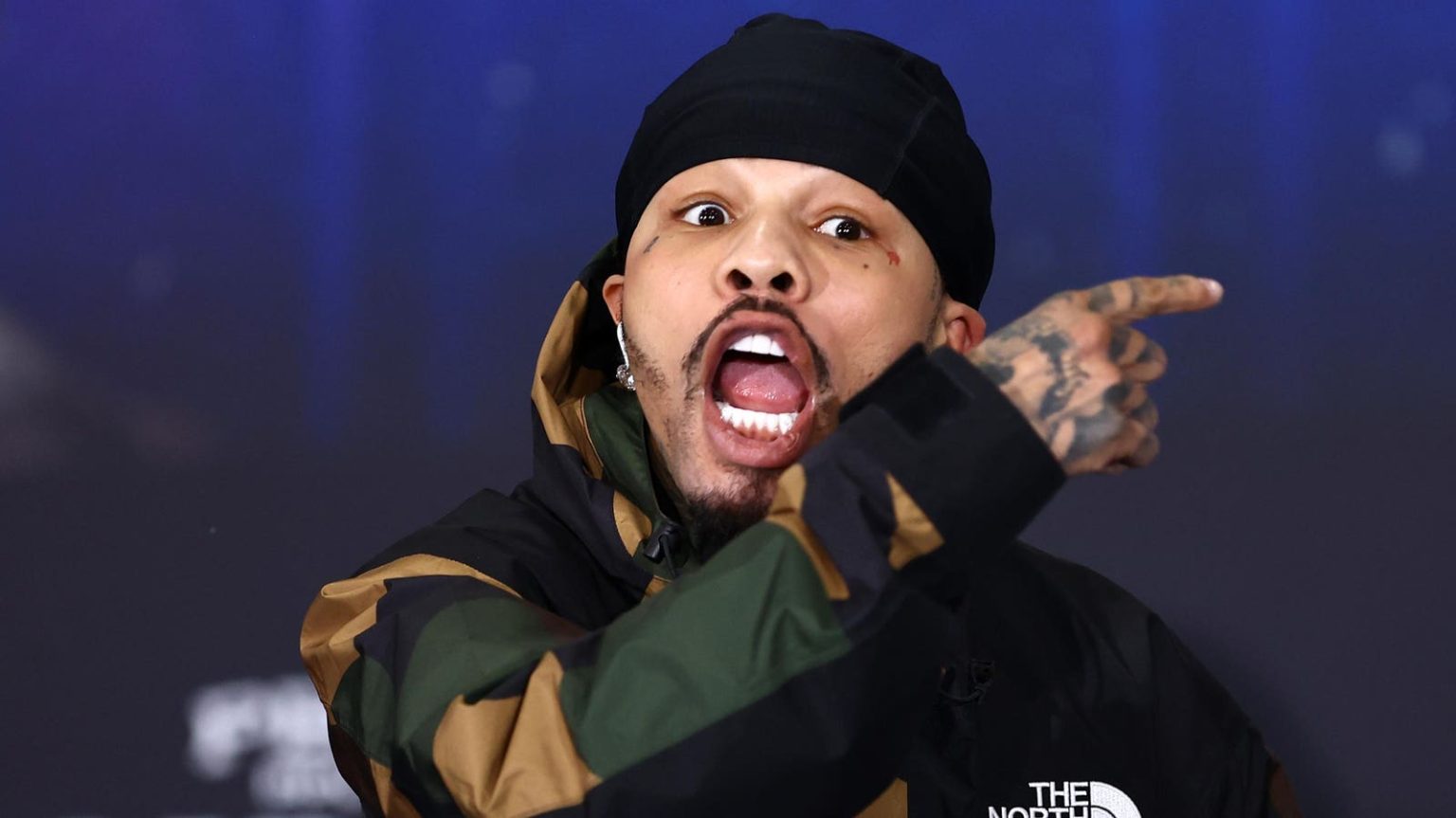Gervonta Davis Unleashes Social Media Tirade Against Ring Magazine Awards, Turki Alalshikh, and Saudi Arabian Boxing Scene
Lightweight boxing champion Gervonta Davis recently ignited a social media firestorm with a scathing attack aimed at the Ring Magazine awards, its owner Turki Alalshikh, and fighters who participate in Saudi Arabian boxing events. Davis’s online outburst stemmed from his perceived exclusion from the prestigious awards ceremony held in London, an event attended by a constellation of boxing stars, including Oleksandr Usyk, Canelo Alvarez, Ryan Garcia, and Devin Haney.
Davis’s ire was primarily directed at Alalshikh, the current owner of Ring Magazine. In a series of expletive-laden Instagram posts, Davis accused Alalshikh of favoritism, suggesting the guest list was comprised of individuals with whom Alalshikh had business dealings. He went on to disparage Alalshikh’s understanding of boxing, questioning his contributions to the sport and his motives for hosting events in Saudi Arabia. The posts were accompanied by a picture of the assembled boxing luminaries, seemingly intended to highlight his exclusion and underscore his claims of bias.
Davis further extended his criticism to fighters who have chosen to compete in Saudi Arabia, often for lucrative paydays. He characterized them as "d*** eaters" and mocked the attendance at these events, contrasting them with his own ability to draw crowds in the United States. This attack on his peers, particularly during a moment of celebration and professional networking, drew significant backlash and was seen by many as an unprofessional display of jealousy.
The boxing world reacted with a mixture of surprise and disapproval. While some acknowledged Davis’s right to express his opinions, many felt his approach was unwarranted and counterproductive. Critics pointed out that the awards are based on merit and achievement, not personal relationships, and that Davis’s absence likely stemmed from his recent inactivity and questionable choice of opponents, rather than any deliberate snub. His attack on fighters who compete in Saudi Arabia was also viewed as hypocritical, given the significant financial incentives that drive many boxers’ career decisions.
Davis’s outburst comes amidst a period of personal and professional turbulence. He has faced criticism for selecting relatively unchallenging opponents, particularly his upcoming bout against Lamont Roach Jr. He also abruptly announced the cancellation of the Roach fight on social media, only to have the announcement retracted by his promoters. Furthermore, Davis has hinted at retirement in 2025, further fueling speculation about his mindset and future in the sport.
This latest controversy adds another layer of complexity to Davis’s already controversial career. While undeniably talented and possessing a captivating fighting style, he is also known for his volatile personality and erratic behavior outside the ring. His recent actions risk overshadowing his in-ring accomplishments and alienating fans and colleagues alike.
The long-term consequences of Davis’s outburst remain to be seen. Whether he can repair the damage to his reputation and mend fences with those he has offended remains an open question. His career trajectory, once seemingly destined for greatness, now appears clouded by uncertainty. The upcoming fight against Roach, initially viewed as a routine tune-up, now carries added significance. Davis has an opportunity to silence his critics and reaffirm his commitment to the sport. However, if his recent behavior is any indication, the road ahead may be fraught with further controversy.
This incident also highlights the growing influence of Saudi Arabia in the world of boxing. The kingdom’s willingness to invest heavily in the sport has attracted some of the biggest names, including Anthony Joshua and Tyson Fury, drawing both praise and criticism. While some applaud the increased financial opportunities for fighters, others express concerns about the ethical implications of partnering with a country with a controversial human rights record.
Davis’s stance against Saudi Arabian boxing, while perhaps clumsily articulated, reflects a broader debate within the sport. The influx of Saudi money has undoubtedly reshaped the boxing landscape, shifting power dynamics and creating new opportunities. However, it has also raised questions about the future of the sport and the values it represents. The clash between financial incentives and ethical considerations will likely continue to shape boxing’s trajectory in the years to come.
For Davis, the path forward is unclear. He possesses the talent to become one of the all-time greats, but his volatile personality and questionable decision-making threaten to derail his potential. Whether he can overcome these challenges and fulfill his promise remains to be seen. His next move, both inside and outside the ring, will be closely scrutinized by the boxing world.
The incident also serves as a reminder of the power and perils of social media. While platforms like Instagram provide athletes with a direct line of communication to their fans, they also offer a platform for impulsive and potentially damaging outbursts. Davis’s social media tirade, while arguably born of genuine frustration, ultimately served to damage his own image and cast a shadow over his considerable boxing skills. The incident underscores the importance of careful consideration and responsible communication in the digital age.
It remains to be seen how this episode will affect Davis’s career and the broader boxing landscape. Will it serve as a wake-up call, prompting him to re-evaluate his approach and refocus on his boxing career? Or will it further entrench him in a cycle of controversy and self-sabotage? Only time will tell. However, one thing is certain: Gervonta Davis’s recent actions have ignited a firestorm, the repercussions of which will continue to reverberate throughout the boxing world for some time to come.






